Public Relations Writing:
Press Releases and Media Pitching
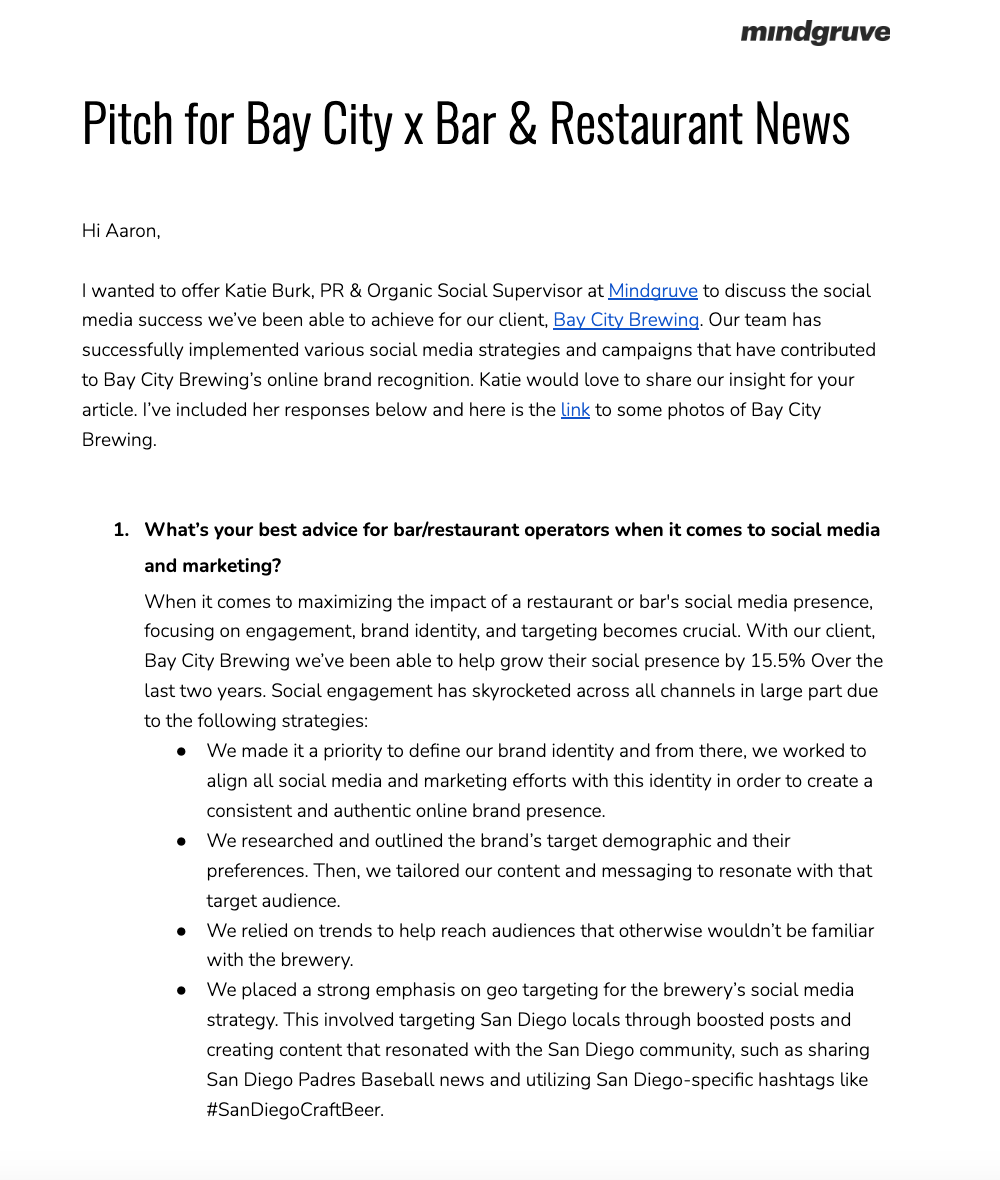
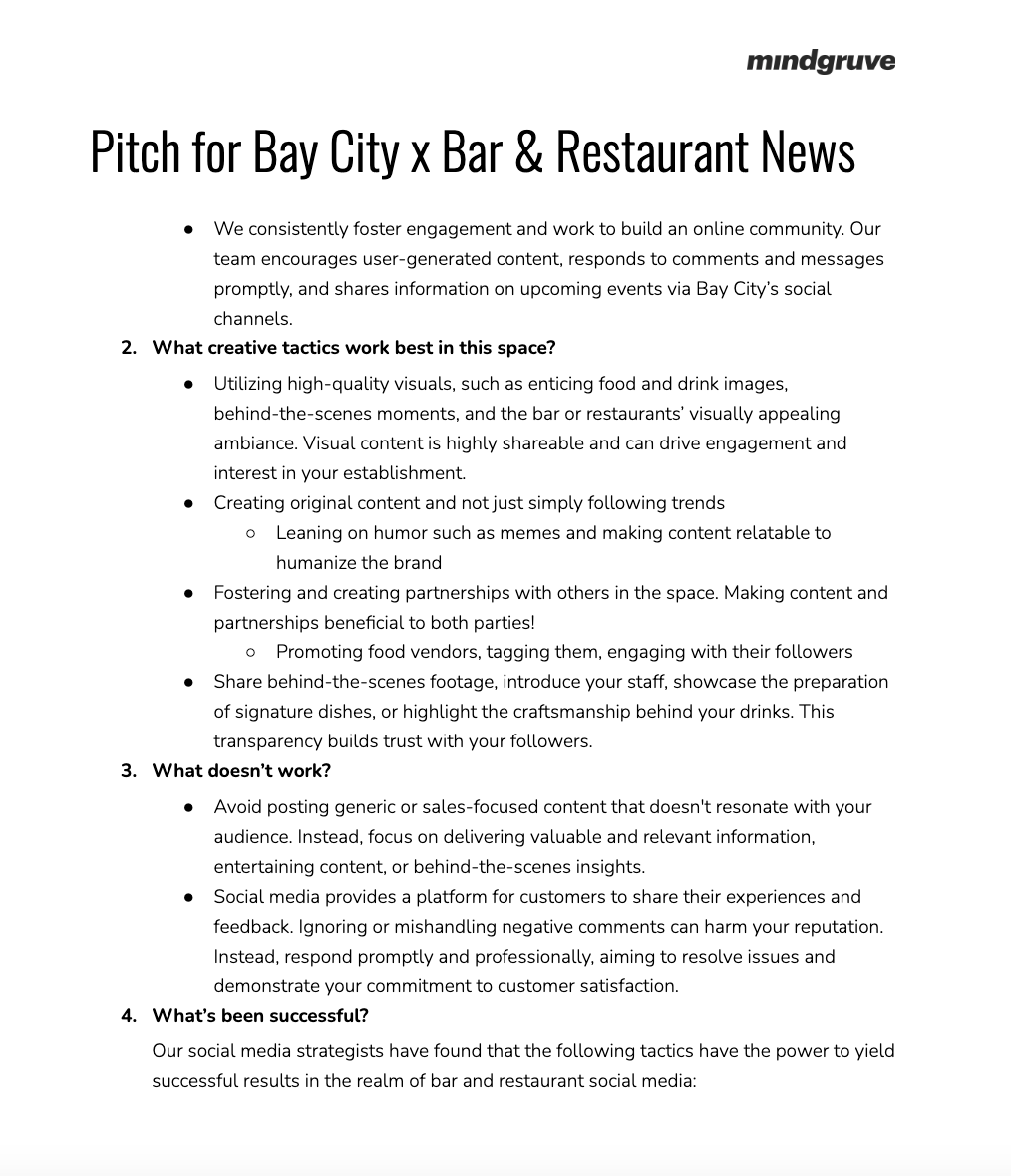
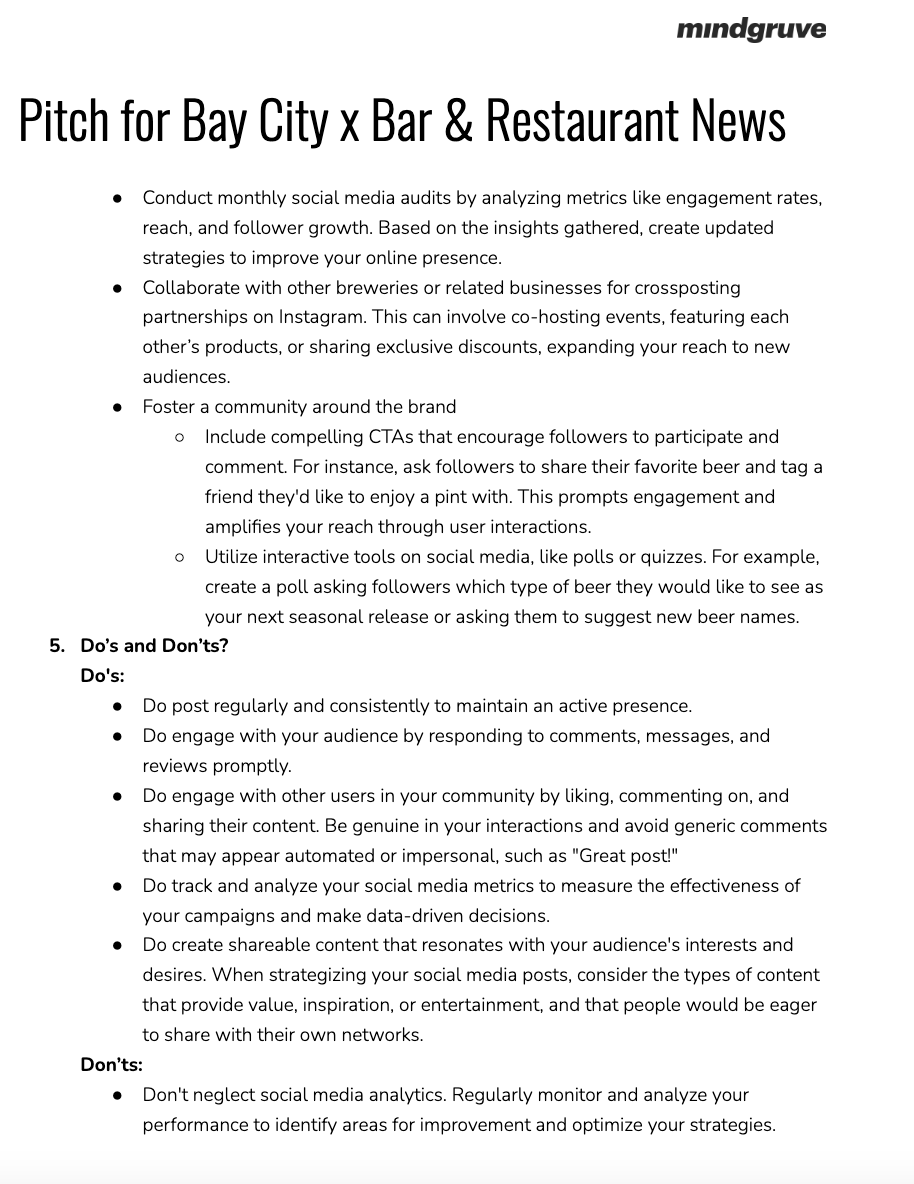

First Horizon Bank
Bucket List-ening Podcast PR & Social Strategy

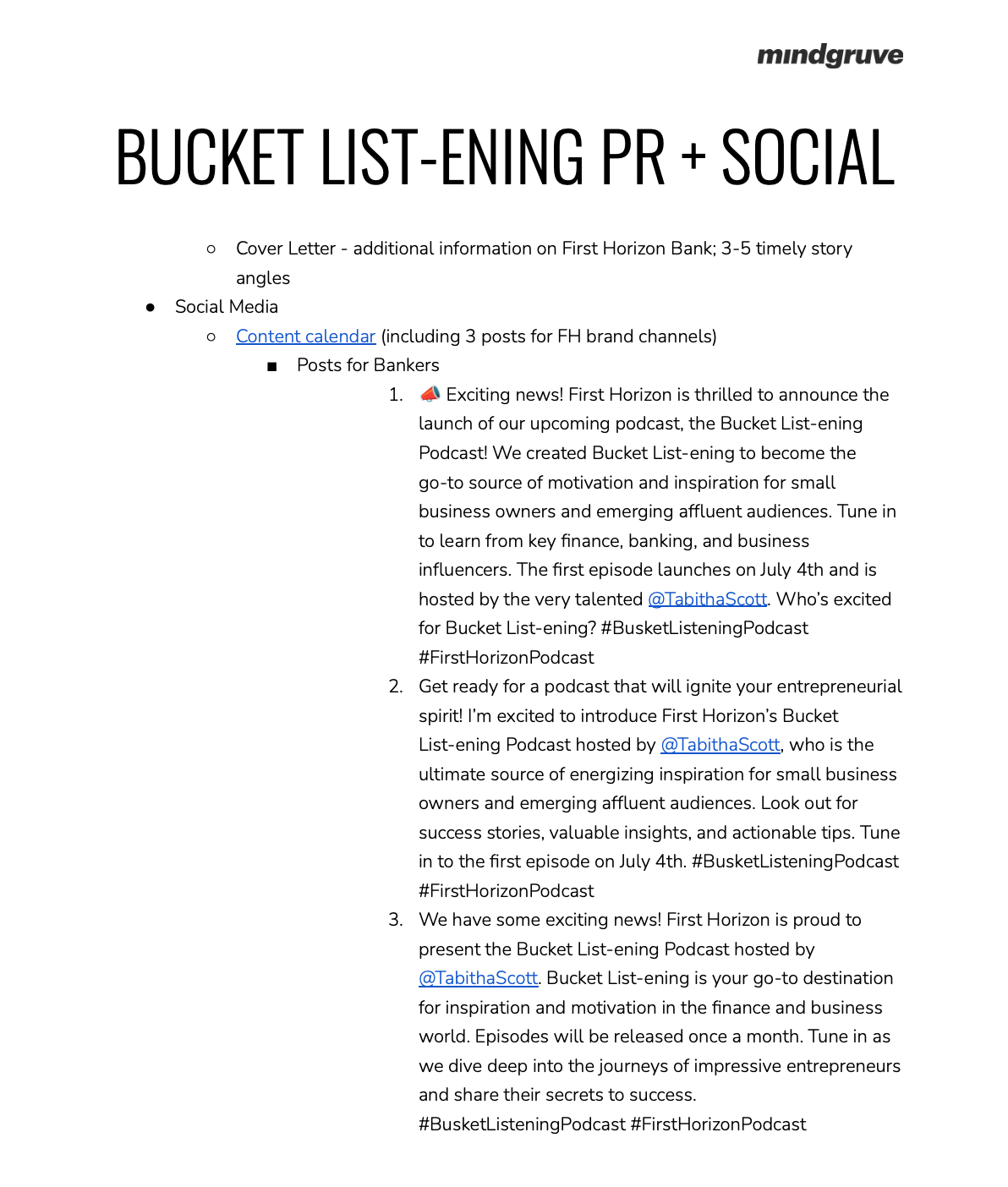
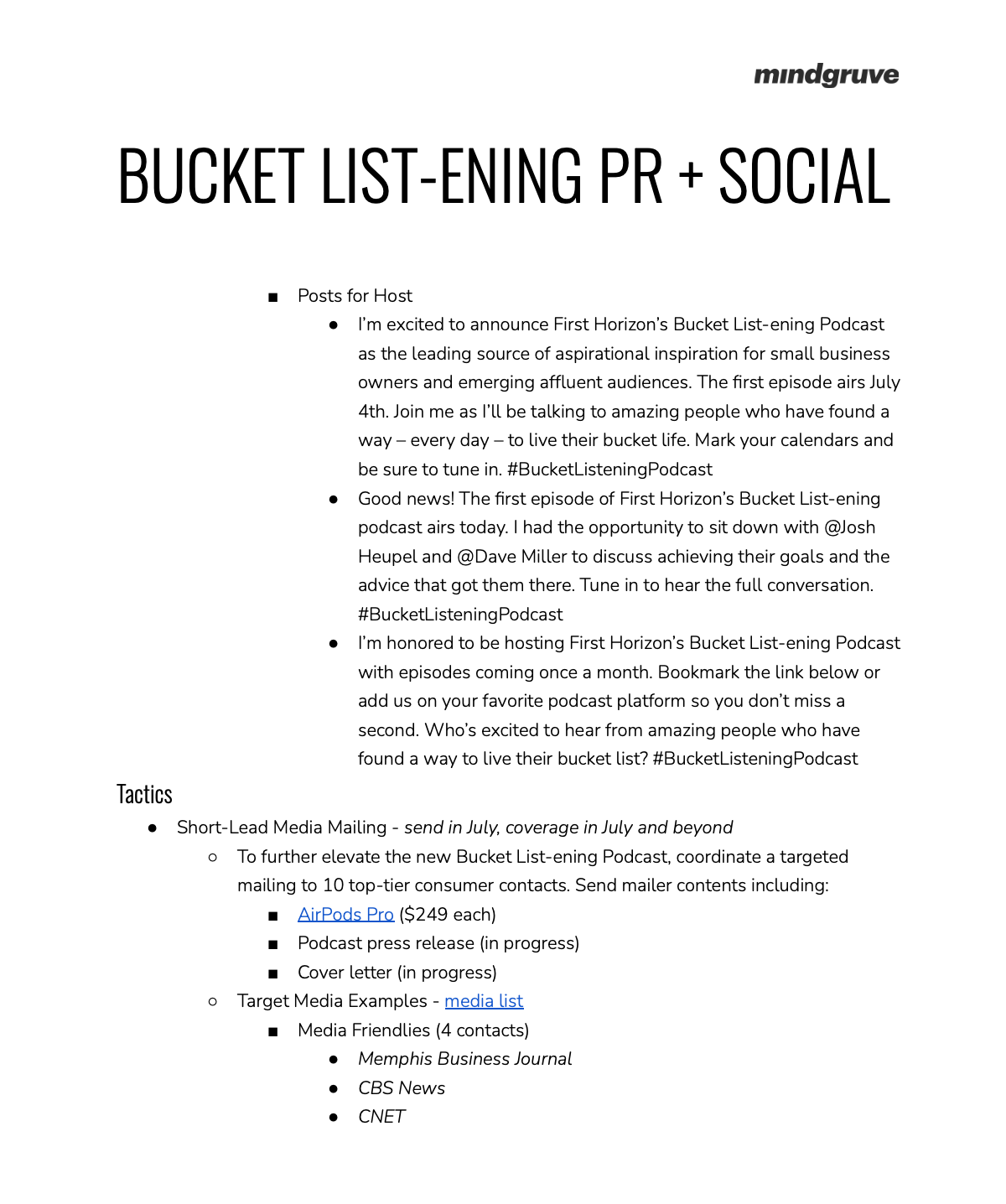
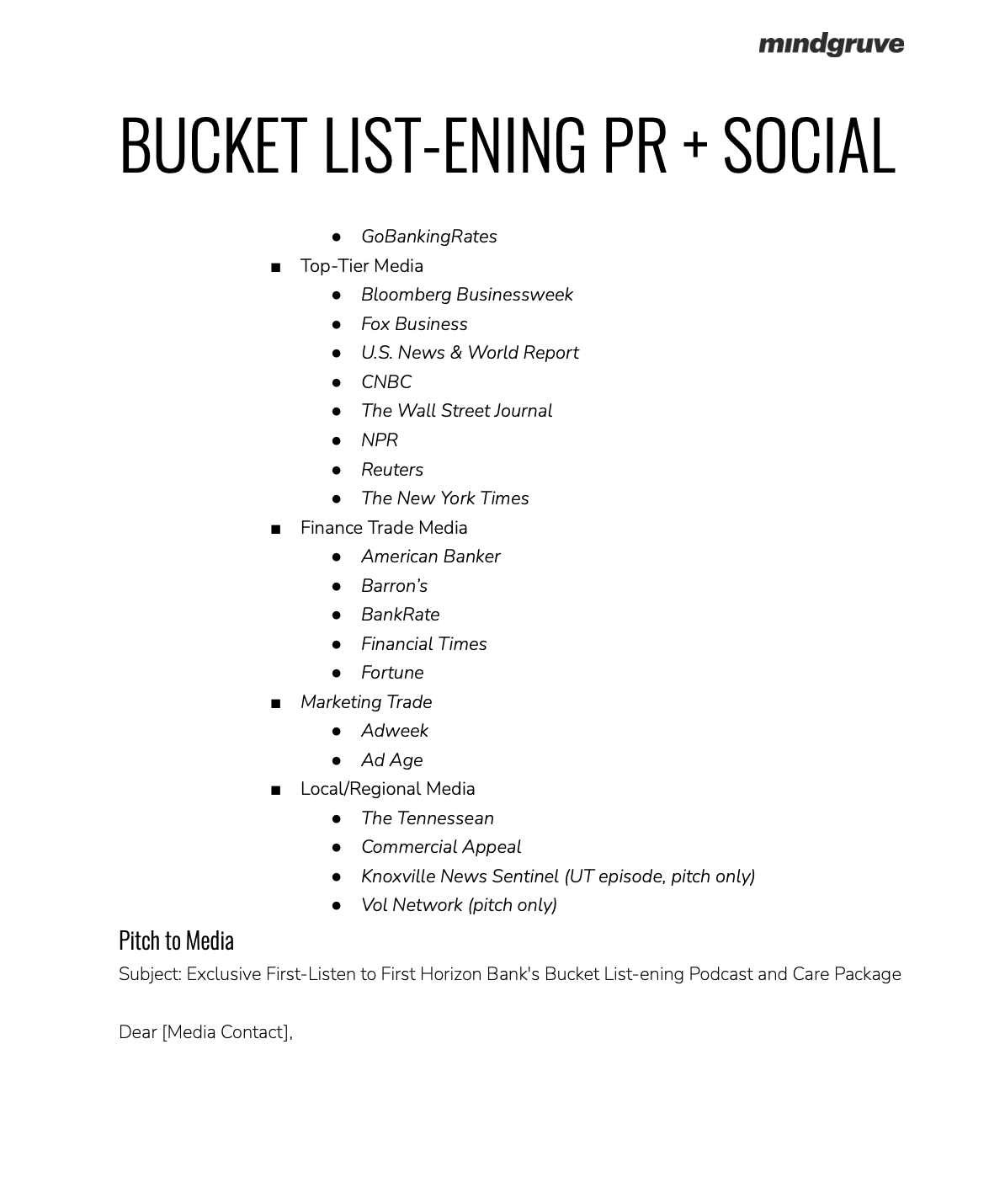

_______
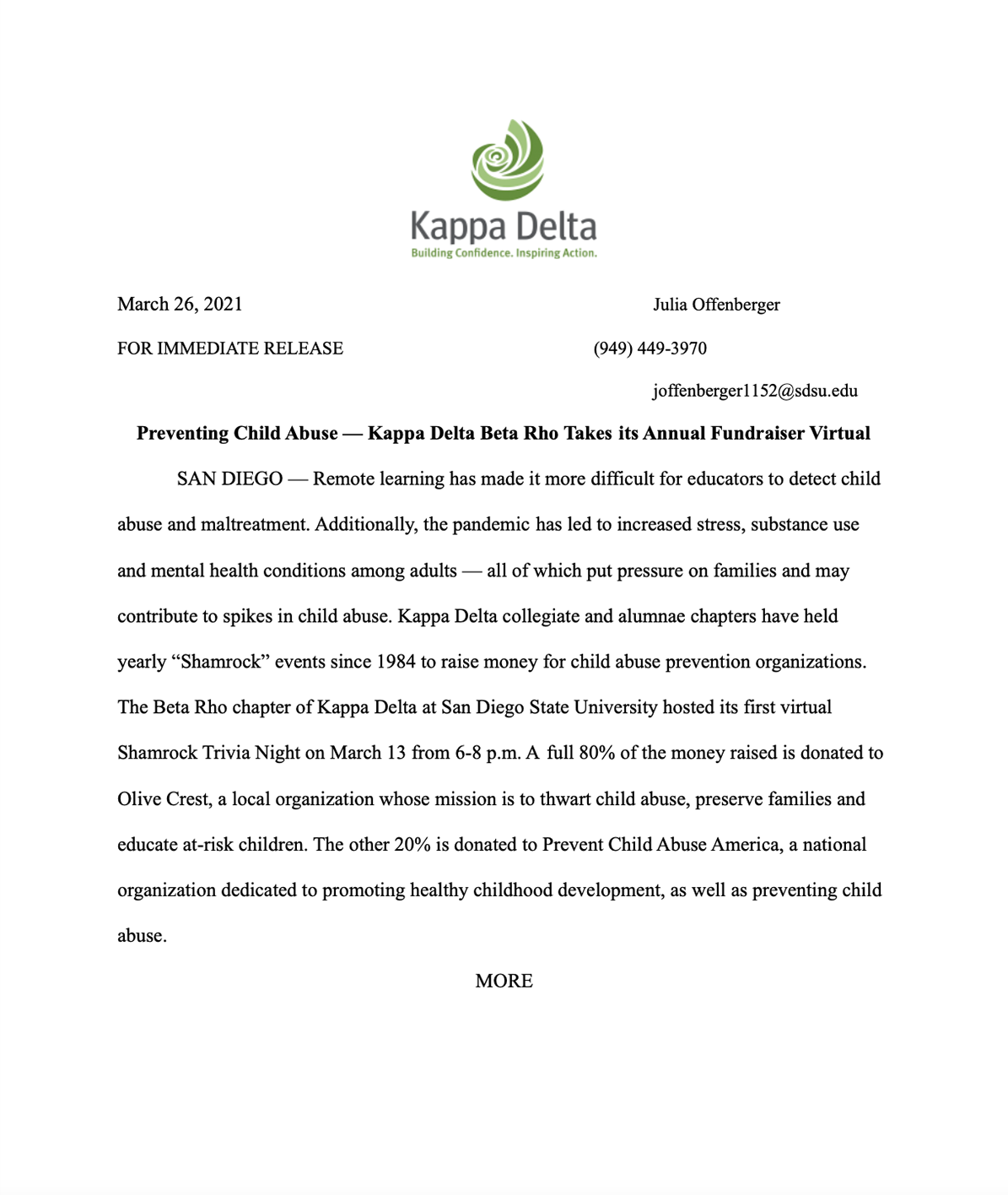
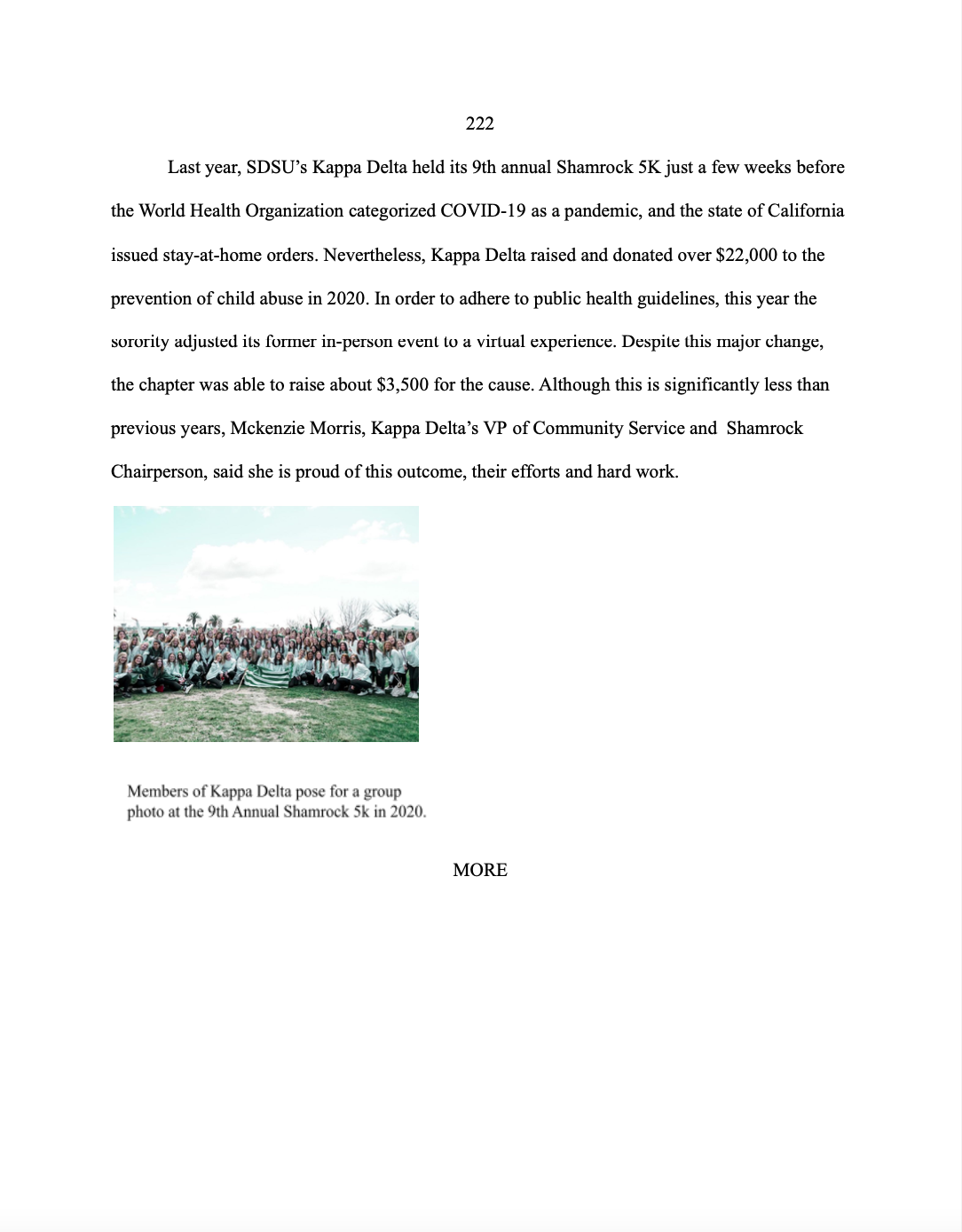
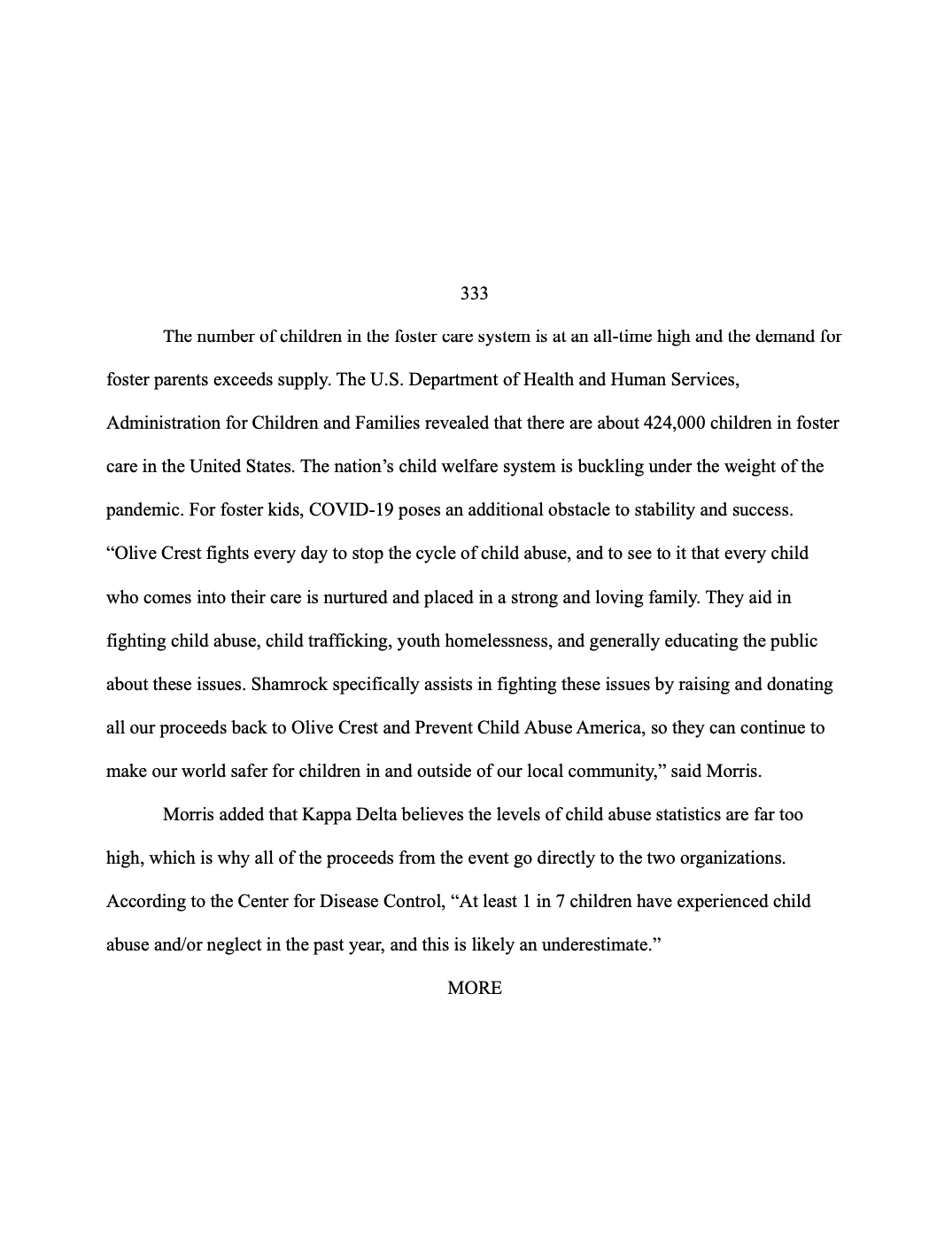
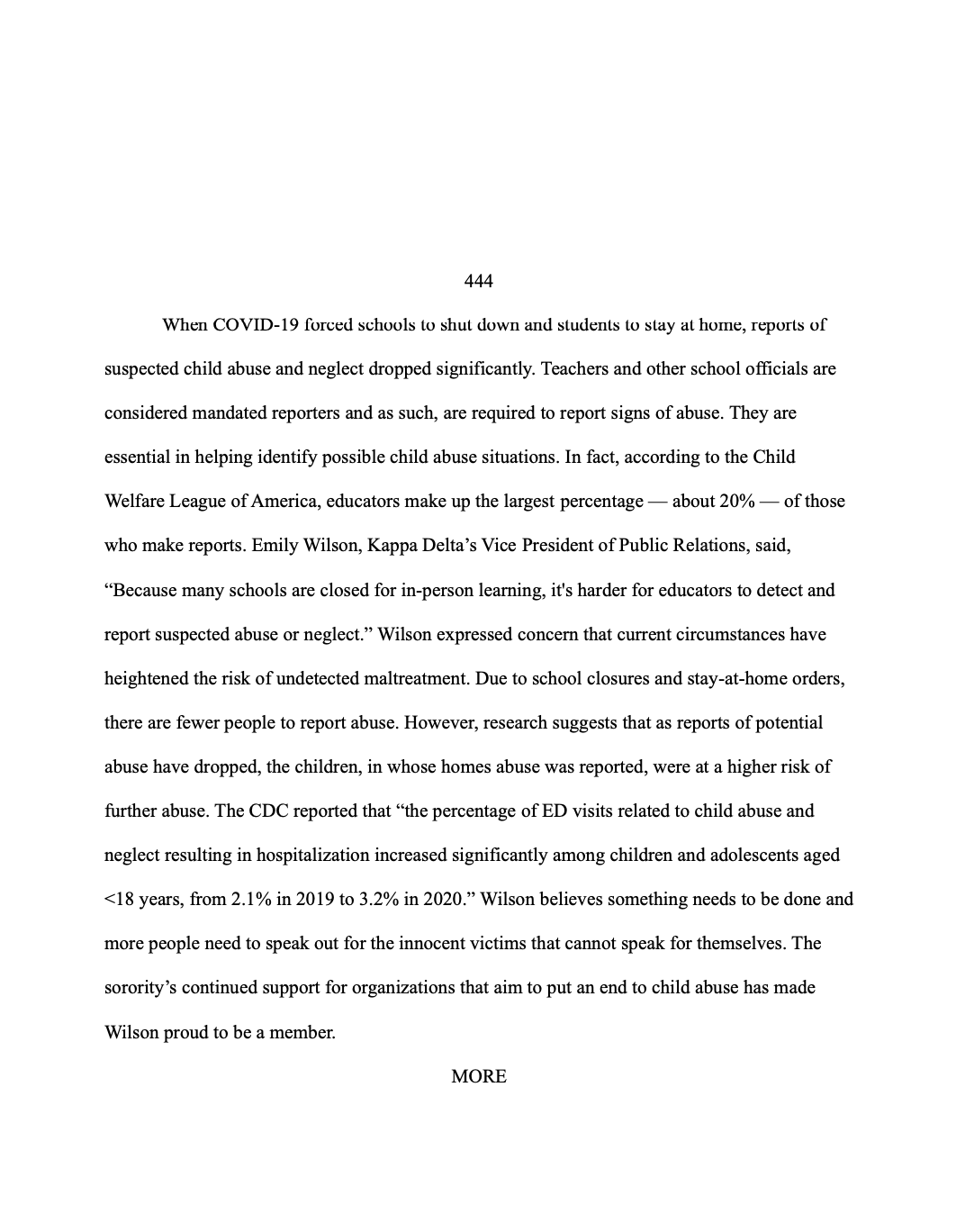
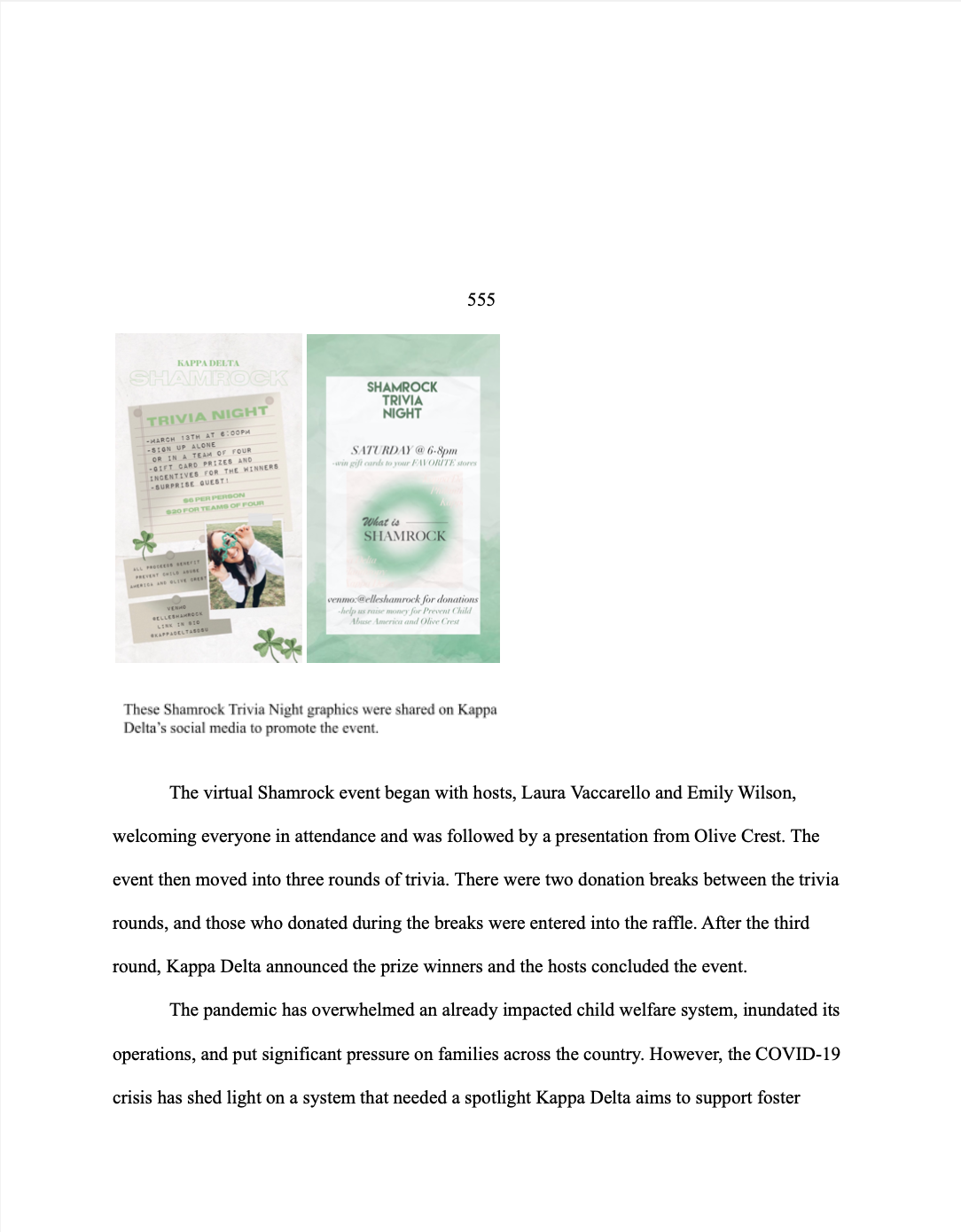
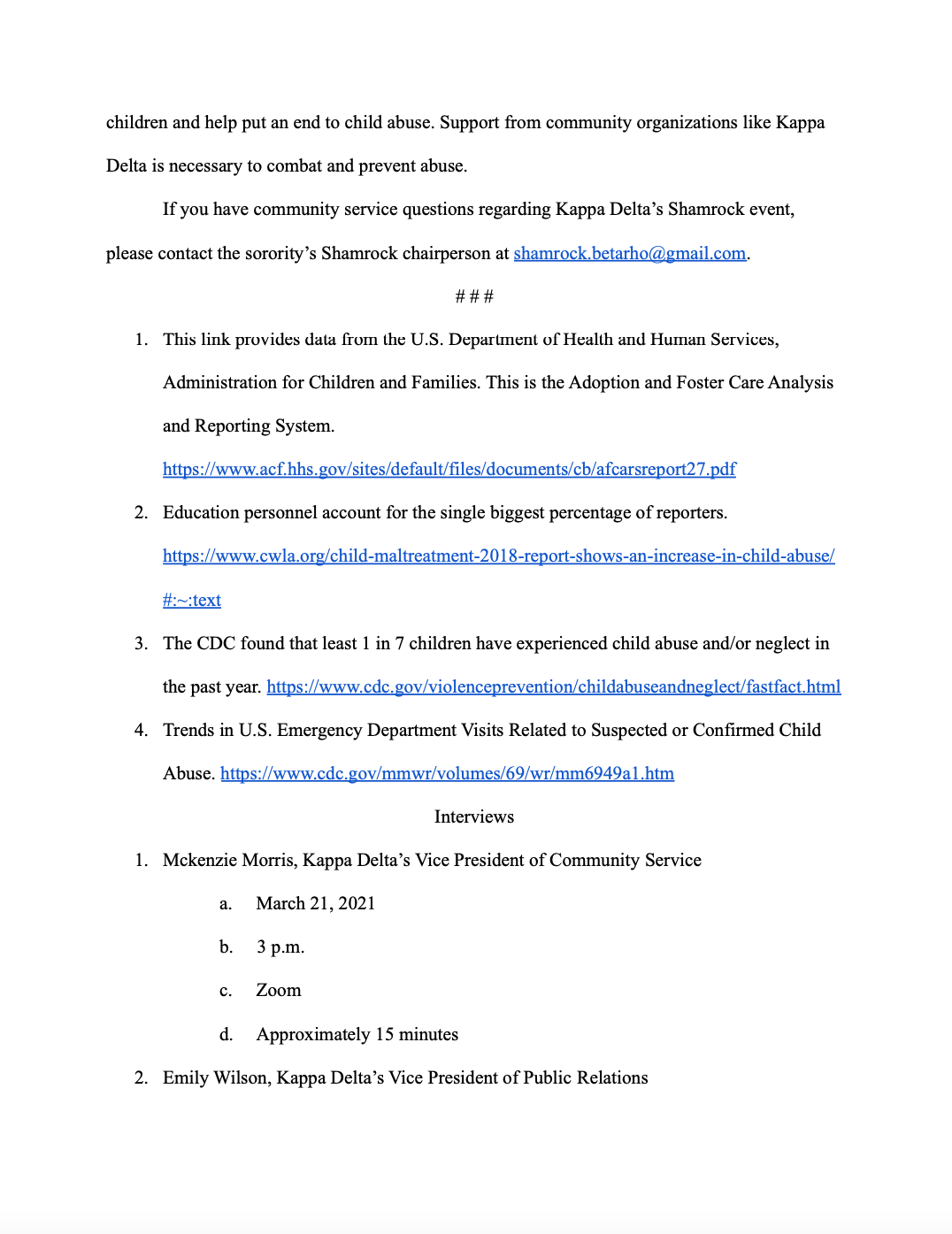

SDSU Personality Profile: Elena Mountin
Picture yourself typing up a lab report as you hear the waves crashing, taste the fresh, salty air, and experience the scent of vegetation, soil, and flowers. Now imagine yourself doing this every day for the entire spring semester at San Diego State.
This depiction is not a study abroad program. This is a description of Elena Mountin’s life as an undergraduate student enrolled in full-time classes at SDSU during the pandemic. Mountin took advantage of the remote learning experience and moved to Puerto Rico for the spring semester.
Mountin grew up in the Bay Area; she is from Lafayette, California, but her mother was born and raised in the Commonwealth of Puerto Rico.
“My mom is originally from Rio Piedras, Puerto Rico, but moved to California when she was 15,” said Mountin.
In August 2019, when Mountin left for college, her parents decided to retire and return to their land of origin.
Mountin has visited Puerto Rico countless times, but she never imagined she’d be packing up and moving there while still enrolled in classes at SDSU.
The switch to online classes and remote learning has impacted the lives of many SDSU students; Mountin is no different.
When asked what she misses about pre-pandemic face-to-face classes, Mountin said, “I really miss the atmosphere. I'm the type of person that, when I go to in person classes, I'm very tuned into my education. Then, once I leave the vicinity of campus and go back to my dorm or my apartment, I am able to kind of switch out of that mindset. Whereas, when I’m taking classes fully online, I’m less engaged because I’m not in an educational environment or atmosphere.”
Many students chose to stay home this past school year, but a small percentage moved back to campus.
Back in fall 2020, Mountin was told that she needed to live near to or on campus because some of her classes that required hands-on learning were scheduled to be held in person. That quickly changed when SDSU saw a significant rise in COVID-19 cases, and the administration worried about the student health and safety of students, staff, and faculty.
On Sept. 8, 2020, the SDSU Office of Housing & Residential Education announced that residents would be allowed to terminate their housing contract without any financial penalty or fee until Dec. 18, 2020.
Shortly thereafter, SDSU declared that instruction would continue to be held primarily online, with some exceptions.
A couple months later, in a university-wide email, SDSU President Adela de la Torre and Provost Salvador Hector Ochoa provided an update on plans for continued virtual instruction.
The email reads, “With the exception of about 130 courses, courses will be provided virtually, much like in the fall 2020 semester. The limited number of courses offered in person will allow us to remain in compliance with ongoing public health guidelines.”
After seeing these announcements, Mountin called her parents and texted her longtime friend, Sofia Swatt, about moving to Puerto Rico. When Mountin asked Swatt to join her in Puerto Rico, Swatt was quick to say yes.
Mountin and Swatt have been friends for 14 years.
In an interview, Swatt said, “I have wanted to live in the Caribbean since I was little. My mom is from Venezuela, so the Caribbean always felt like a home away from home for me. When Elena mentioned she was thinking about living here this semester, I immediately was on board.”
Within the span of a couple months, Mountin finalized her plans to move out of her on-campus apartment and into a beachside apartment in Puerto Rico, close to her parents’ retirement home.
When asked why she made the choice to leave Southern California, Mountin answered, “I've always loved the culture and atmosphere of Puerto Rico. I was living on campus this past fall semester, but rent was a lot and I obviously wasn't socializing much because of COVID. I figured why not pay less rent for a beautiful place right by the beach and take all my classes here since everything's online.”
Mountin ended her lease, packed her bags and headed to the airport in late December.
Mountin and Swatt are currently living in Condado, a community in the San Juan area of Puerto Rico. “I'm living in a smaller part of San Juan called Condado. It’s a very hip, touristy type of community,” said Mountin.
Puerto Rico uses Atlantic Standard Time. The island doesn’t use daylight saving time because of its proximity to the Equator.
When asked how she is managing classes with a four hour time difference, Mountin said, “Most of my classes start around noon, and then go until 10 p.m. So, I usually start the day by taking a walk on the beach, doing a little workout, and enjoying a nice, relaxing morning. Then, I get into the thick of it and just grind out my work.”
The time difference has forced Mountin to adjust her sleep schedule. While she is able to sleep late, she must stay awake late into the night to finish classwork. Sometimes, she doesn’t go to sleep until the early hours of the morning.
Mountin is a sophomore majoring in kinesiology with an emphasis in pre-physical therapy. “I’m currently enrolled in 19 units. I'm taking anatomy with lab, microbiology with lab, psychology, nutrition, and then my honors class,” said Mountin.
Although school consumes most of her time on the weekdays, Mountin enjoys going on adventures when the weekend begins.
Mountin explained, “I love doing nature, adventure-type things here. We have some beaches with calm waves where we can just chill in the water. But, we also have beaches with big waves, where we can surf or body surf. Then, there are rainforests where we can go on really cool hikes and such.”
Swatt mentioned, “Since we live a block away from the beach, there is literally not a day when I’m not there. It’s my happy place.”
When asked about how living with Elena and living in Puerto Rico has been, Swatt said, “It’s been a dream come true. Elena is the best roommate I could ask for. I think I would be more hesitant to live with my other friends, but our friendship history and dynamic makes living together very positive.”
With the beach steps away and the rainforest a short drive away, Mountin and Swatt both said that they are grateful to have this experience during such a tumultuous, unprecedented time.
Mountin went on to say, “I made the right choice moving here for the semester. I’m paying a little more than half of the rent I was paying in San Diego. I like that I have my family here and that I get to live with one of my best friends from elementary school.”
With the ongoing pandemic, students are worried they won’t have the opportunity to study abroad. Mountin said, “I really want to study abroad in Spain or somewhere else in Europe. Hopefully, I still get to do that, but, if I don't, at least I had a semblance of it this semester.”
In spite of the challenges that the pandemic has forced upon so many, it has also presented unique opportunities. Mountin, like many SDSU students, had to change the way she engages in her education, but she found a work-around that for now, is working; Mountin has taken advantage of remote learning by doing so remotely — roughly 3,000 miles away on a tropical island in the Caribbean.
SDSU Editorial
Publication: The Daily Aztec
Headline: Colleges Should Require that Students Receive the COVID-19 Vaccine
Focus: This story focuses on the importance of crafting and implementing a policy that will mandate the COVID-19 vaccine at colleges and universities.
Editorial:
Although these times are often described as unprecedented, the same cannot be said about vaccination requirements at colleges.
Most California colleges and universities already require that incoming students receive routine vaccinations for diseases like rubella, meningitis and chickenpox. Research suggests that a large number of students think that the COVID-19 vaccine should be put within that same category.
In January 2021, College Pulse conducted a survey of 1,000 undergraduate students and found that “roughly 7 in 10 (71%) believe colleges have the right to require students to get vaccinated before returning to campus.”
Nikki Sepasyar, a sophomore studying public health at the University of California Irvine, thinks that college students should get vaccinated when they become eligible to help keep the community safe and mitigate the spread of COVID-19.
Sepasyar said, “During the 2020-2021 school year, the UC system mandated the flu vaccination for all students and employees. However, they changed the policy and made the vaccination a requirement for those living or working on campus. A similar policy could be put in place for the COVID-19 vaccine. I think colleges should have an online portal where students can upload proof of their COVID-19 immunization and fill out the dates they received doses of the vaccine.”
Should colleges and universities require students to be vaccinated, students with medical and religious objections will certainly arise. Students should be able to seek out exemptions or waivers if they have legitimate reasons and documentation.
In times of crisis and uncertainty, conspiracy theories and false information tend to thrive. A global pandemic during the digital age arguably creates conditions for a perfect storm of rumor and false news that can spread equally as fast as the virus itself.
In addition to instituting a COVID-19 vaccine mandate, colleges should focus on educating students on the safety and effectiveness of the vaccine. Institutions must also ensure students know where to find accurate, up-to-date COVID-19 information. Doing so will help stop the continued spread of misinformation surrounding the virus and the vaccine.
California colleges have a duty to make sure their students are safe on campus. Establishing a vaccine mandate fulfills this duty and protects the community at large.
According to the Centers for Disease Control and Prevention, “Getting vaccinated yourself may also protect people around you, particularly people at increased risk for severe illness from COVID-19… COVID-19 vaccination will be an important tool to help stop the pandemic.”
Although college-age individuals are less likely to become severely ill from the virus, they can still transmit it.
A recent study that was published in the peer-reviewed journal Computer Methods in Biomechanics and Biomedical Engineering found that college campuses are at risk of becoming COVID-19 “superspreaders” for their entire county. Medicinenet defines superspreader as “a highly infectious person who spreads the agent of an infectious disease to many other people.”
The study drew COVID-19 case reports from 30 colleges across the nation with the highest amount of reported cases. In 17 of the campuses monitored, outbreaks translated directly into peaks of infection within their home counties.
By requiring immunizations, colleges will not just be protecting its students and staff, but also the larger community.
If college administration officials, students, and staff want to return to more normal operations, a vaccine requirement is a crucial step.
_______
_______
